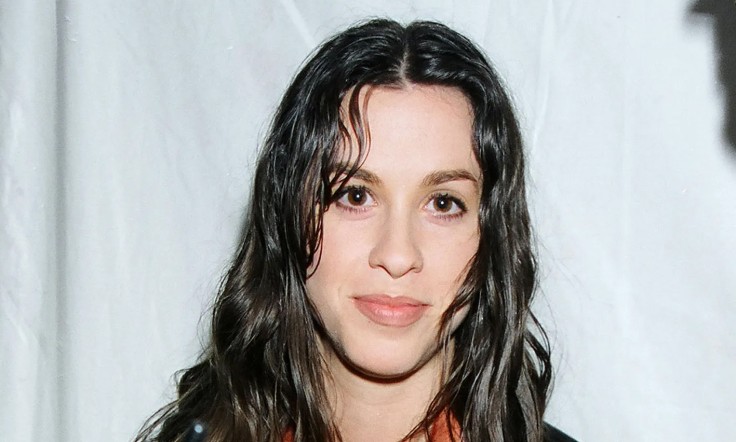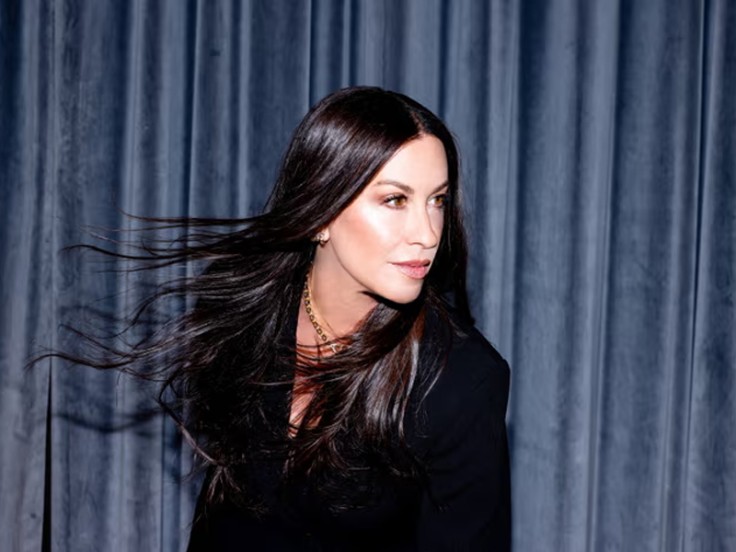
Alanis Morissette has never shied away from the truth — not in her music, and certainly not in life. In a raw and revealing interview with The Guardian's Charlotte Edwardes, the Grammy-winning artist reflected on her turbulent rise to stardom, struggles with addiction, and how therapy helped her find peace as a mother of three.
The conversation comes ahead of Morissette's long-awaited debut at Glastonbury, as she prepares to tour across Europe with stops in London, Dublin, Belfast, Cardiff and Glasgow.
From Child Star to Pop Princess
Morissette's career began early. At just 10 years old, she starred in five episodes of the Nickelodeon series You Can't Do That while juggling a rigorous schedule as a competitive swimmer. She used her earnings to record her first album, which caught the attention of MCA, propelling her into teen pop fame as an opening act for Vanilla Ice.
By high school, she was recording in studios between classes, a punishing schedule that foreshadowed years of industry pressure. After graduation, she moved to Los Angeles, learned to play guitar and focused on songwriting. At 19, she signed with Madonna's Maverick Records — and everything changed.
In 1995, Morissette released Jagged Little Pill, a defining alt-rock album that sold half a million copies in its first week. Known for its raw, unfiltered lyrics, the record cemented her status as a voice of a generation — but behind the scenes, the journey was far from easy.

'If Men Couldn't F* Me, They Didn't Know What To Do With Me'**
Morissette opened up about navigating a male-dominated industry rife with predatory behaviour and exploitation. She recalled being scrutinised for her appearance at the height of 'size zero' culture, leading to an eating disorder.
She described the music industry's patriarchal values and how she tried to survive in a world where louder, more flamboyant personalities — like Courtney Love — were rewarded. To cope, she turned to tequila, Xanax, and what she called 'anything that would help me pretend I'm not me.'
Therapy Saved Her Life
Now 51, Morissette credits therapy with saving her. Married and a mother of three, she said she couldn't imagine healthy relationships without couples counselling. Her non-negotiable? A therapist who is 'trauma-informed' and 'addiction-informed'.
She acknowledged her own battles with anxiety, depression and addictive tendencies. 'I call addiction relief-seeking measures that kill you eventually,' she said, citing work, sex, love and shopping as common but socially accepted addictions.
One of the hardest, she added, is work addiction. 'If I said, "Oh, I did heroin till four in the morning and totally blacked out," people would be like, "Oh s***. B**** needs some help." But if I said, "I've been working my f****** a** off for this deadline and I finished at 4:15am," people would be patting my back and be like, "Good work, girl."'
A New Kind of Parenting
Describing herself as an 'empath', Morissette said she is deeply attuned to her children's emotions and development. She challenges the idea that intelligence is purely academic, celebrating physical, natural, and emotional intelligence in her family.
She wants her children to feel seen in every aspect of who they are. 'I don't like hearing kids say, "I'm really dumb,"' she shared. In her home, artistry is a way of life — and the creative process is more important than the outcome.
As she steps onto the Glastonbury stage for the first time, Alanis Morissette is not just reflecting on her past — she's redefining what healing, honesty and artistic legacy can truly look like.
Originally published on IBTimes UK
© Copyright IBTimes 2025. All rights reserved.







